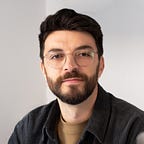The books actually worth your time.
Non-fiction for designers and other humans (update Oct. 2022)
Ratings and popularity can both can be good indicators and help you identify possible worthwhile reads but are no proof of quality. Even the same author can hit or miss. What constitutes a good reading, for me, is when a book is:
- well written–so it satisfies good form and engages your intellect;
- educational–so the reader can learn and grow;
- fun to read–so you actually want to read it (this aspect can heavily depend on your current interests).
Like TV shows, music and podcasts, books are a big industry and are being massively produced, and there’s seemingly one for everyone. But the difference with books is that they take a long time to consume. And in the ocean of catchy book titles, we easily get swayed and lose considerable time on an incompatible book.
Therefore, I’m making a selection from the books I’ve read in the last few years. These books have stood out and noticeably improved my understanding of the world and fellow humans. They also led me to pursue new topics of interest. I hope these books might have a similar effect on you.
The list is short and comprised of only non-fiction books. I read fiction as well, but it doesn’t belong here since it’s impossible to rate them objectively.
Sapiens: A brief history of humankind
by Yuval Harari
You’ve probably heard of it and it is a huge bestseller, but don’t let that deter you. I consider it a modern ‘Bible’ which everyone should read and reread. When you finish this, continue with the follow-ups that are also very worth reading.
Leonardo da Vinci
by Walter Isaacson
I got it as a gift from a friend whom I respect, so I forced myself to read it, and to my big surprise, it was not full of cliches but incredibly insightful. It demystifies just the right things about Leonardo and beautifully depicts life in renaissance Italy.
Everything is F.cked
by Mark Manson
From no expectations to a BIG surprise. Not a self-help book. It’s proper philosophy work–only fun to read. A good entry into a rabbit hole. If you’re searching for “meaning,” look no further. (you can skip his previous book with a similarly controversial title)
Irresistible
by Adam Alter
We, humans, are far from perfect, but the tech companies using science and data to exploit our flaws are borderline evil. It questions if addiction is a disease and explains human behavior with scientific references. A must-read for UX designers.
How Design Makes The World
by Scott Berkun
If you’re not a designer but want to know more about design and the world, this is a perfect choice. The same goes for if you are a designer, you’re ready to challenge your perspective and learn new stuff while being entertained. And it’s concise.
Bad Blood: Secrets and Lies in a Silicon Valley Startup
by John Carreyrou
I couldn’t stop reading. Devoured it. I found myself choosing public transport over a bike, so I can continue reading. Lunch breaks–reading. Masterpiece.
Don’t watch the documentary first! Watch it after you’ve read the book.
Outliers: The Story of Success
by Malcolm Gladwell
No, Bill Gates is not part of a global conspiracy. Yes, there’s really such a thing as white privilege. And yes, there are coincidences and lucky breaks.
Gladwell breaks down exactly why some people became successful.
Humankind: A Hopeful History
by Rutger Bregman
Have you ever wondered if humans are innately good or evil? This book actually has the answer — based on data. And the author knows how to engage the reader. So much fun. Can’t wait for his next book!
(search: Bregman Davos)
Bullshit Jobs
by David Graeber
Funny title, but it’s a very serious book based on a scientific method that actually explains the ways of the world — like exactly how we came to this point in capitalism. Mind blown. Read this book now and get smarter for real.
Takeaways
- Simply try to read these books.
- If it doesn’t stick after 30 pages, park it and try the next. You might return to it after a year or longer.
- Open a text file and document the books you’ve read, and write a short, honest, super-subjective review for yourself. Since I started documenting, I completed over 70 books. If I didn’t write it down, I think I would forget a lot and miss reflecting on the books. Most of them I read on an e-reader.
- You should document even the books which you abandoned and why.
If you’re not a reader yet, I wrote another article just for you: “How to become a reader.”
